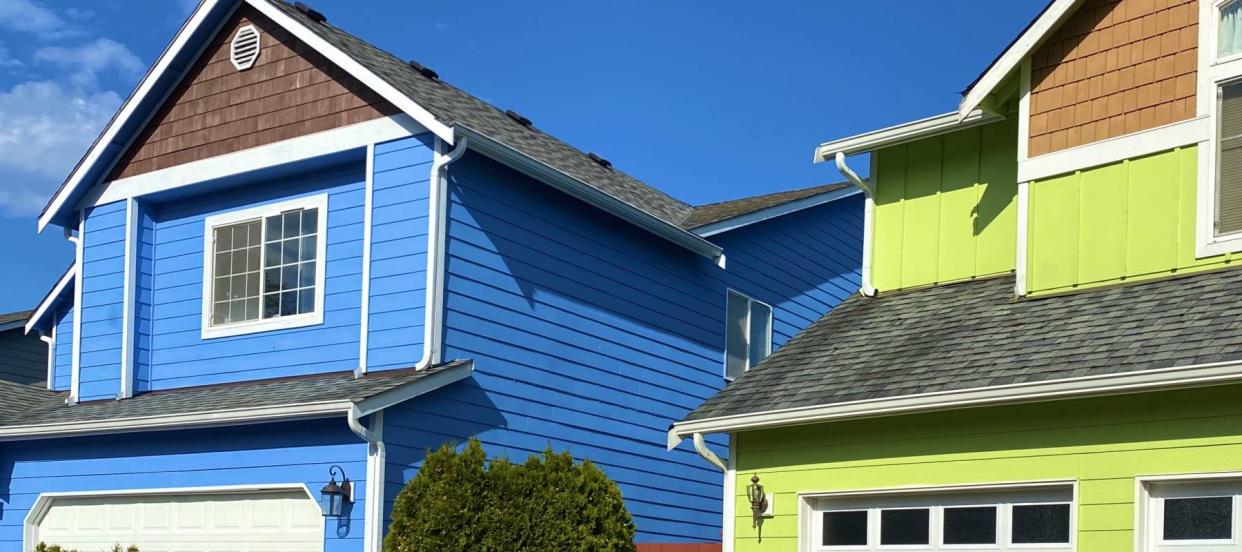Should you pay 'points' to get an extra-low mortgage rate?

Mortgage rates keep dropping to fresh all-time lows, but homebuyers can get even steeper markdowns by using what are called discount points. These are optional fees you can pay the lender to bump your mortgage rate down a bit.
But that’s the catch.
"You have to be willing to pay for it," says Nicole Rueth, producing branch manager of Fairway Independent Mortgage Corp. in Englewood, Colorado. "You can get your rate into the 1s or low 2s, but how much are you willing to pay — and when does it stop making sense?"
Discount points won’t benefit every mortgage shopper. So before you buy down your interest rate, be sure you understand how points operate and whether they’re worthwhile.
How do discount points work?
Mortgage points are one way to lower your interest rate. If you buy one point, it usually costs 1% of the loan amount — so you would pay $2,000 to buy one point on a $200,000 mortgage. One point typically lowers your rate by 0.25%, so a 3% rate would fall to 2.75%.
But those are estimates. There’s no set price tag on points, and no hard-and-fast rules for how much they lower your rate. That’s why it’s important to "ask your lender about your spread of options," Rueth says.
Get multiple rate quotes and ask each lender how its points system works.
If you see a spectacular mortgage rate advertised somewhere, look closely. The fine print might tell you that the rate comes with points. For example, the loans in the widely Freddie Mac mortgage rates survey, which hit an all-time low this week, came with an average 0.8 point.
So, to get a drool-worthy rate, you may need to shell out an extra fee.
Any points should be listed on your loan estimate, an official document which the lender is supposed to provide at least three days after you apply for a mortgage. You pay points at closing, along with the other closing costs.
How do I figure out if points are worth it?

The answer comes down to whether you keep the mortgage past your "break-even point." That’s when the money you save via your monthly mortgage payments reaches the amount you paid to buy points. After this time, you start saving money for real.
If you think you’ll refinance your mortgage or move before you break even, then you'll lose money on the discount points you paid.
To figure out your break-even point, open the calculator app on your phone or computer.
Let’s say you get a quote for a 30-year, $200,000 mortgage at a fixed 3%, and your monthly payment with no points is $975. You want to buy one mortgage point for 1% of the loan amount, or $2,000. It will allow your interest rate to drop to 2.75% and your monthly payment to fall to $954 — saving you $21 a month.
Divide what you paid for your point ($2,000) by the amount of your monthly savings ($21). The result is 95.24, which means it'll take you 95 and a quarter months or just under eight years to hit the break-even point.
When points make sense
If you plan to hang onto the mortgage longer than eight years, you'll save money in the long run.
Discount points can be worthwhile when:
You plan to stay in the home after your break-even point. Recouping the money you paid for discount points may take several years. But if you snagged an amazing interest rate and you don’t have plans to move, then you'll come out ahead.
You need help qualifying for the mortgage. When you apply for a mortgage, the lender will calculate your "debt-to-income ratio," or DTI. This metric shows how much of your monthly income will be going toward debt payments, including your mortgage. A DTI that’s too high may disqualify you from the loan. But buying down your mortgage rate can help you lower your monthly payment and fit within the lender's DTI requirements.
You don’t expect rates to drop much more. Paying money to lower your rate doesn’t make sense if mortgage rates will keep dropping to new historic lows. “People who bought their rate down three months ago regret it today" because rates fell soon after, Rueth says. But if you believe rates will start increasing soon, then you might decide it's wise to buy down your rate.
But always shop around and seek out detailed rate quotes from three to five lenders — or more. Because you might find one lender has a rate with no points that beats another lender's rate with points.
Be sure to comparison shop when buying or renewing your homeowners insurance, too. It's a great way to find the right coverage at the lowest price.

